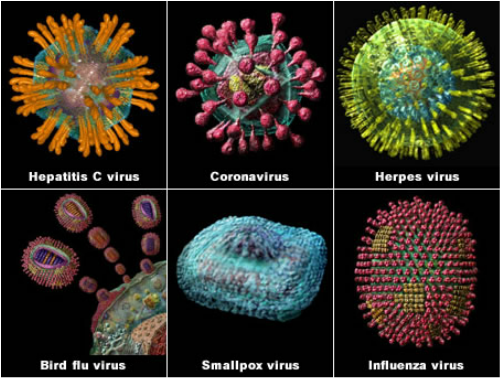- Viruses are microscopic parasites generally much smaller than bacteria. They lack the capacity to thrive and reproduce outside of a host body.
- Viruses are said to be so so small that 500 million rhinoviruses( which cause the common cold ) could fit onto the head of a pin.
- They are unique because they are only alive and able to multiply inside the cells of other living things.
- Viruses can infect all type of life forms from animal and plants to microorganisms including bacteria and archaea.
- WHERE DO VIRUSES COME FROM?
- Three main hypothesis have come :
- The progressive hypothesis states that viruses are rows from genetic elements that gained the ability to move between cells.
- The regressive hypothesis states that viruses are remnants of cellular organisms.
- The virus first hypothesis states that virus predate or co evolved with their current Cellular host.
APPLICATIONS OF VIRUSES
- Study and use of viruses have provided valuable information about aspects of cell biology.
- Virotherapy involves the use of genetically modified viruses to treat diseases.



Comments
Post a Comment